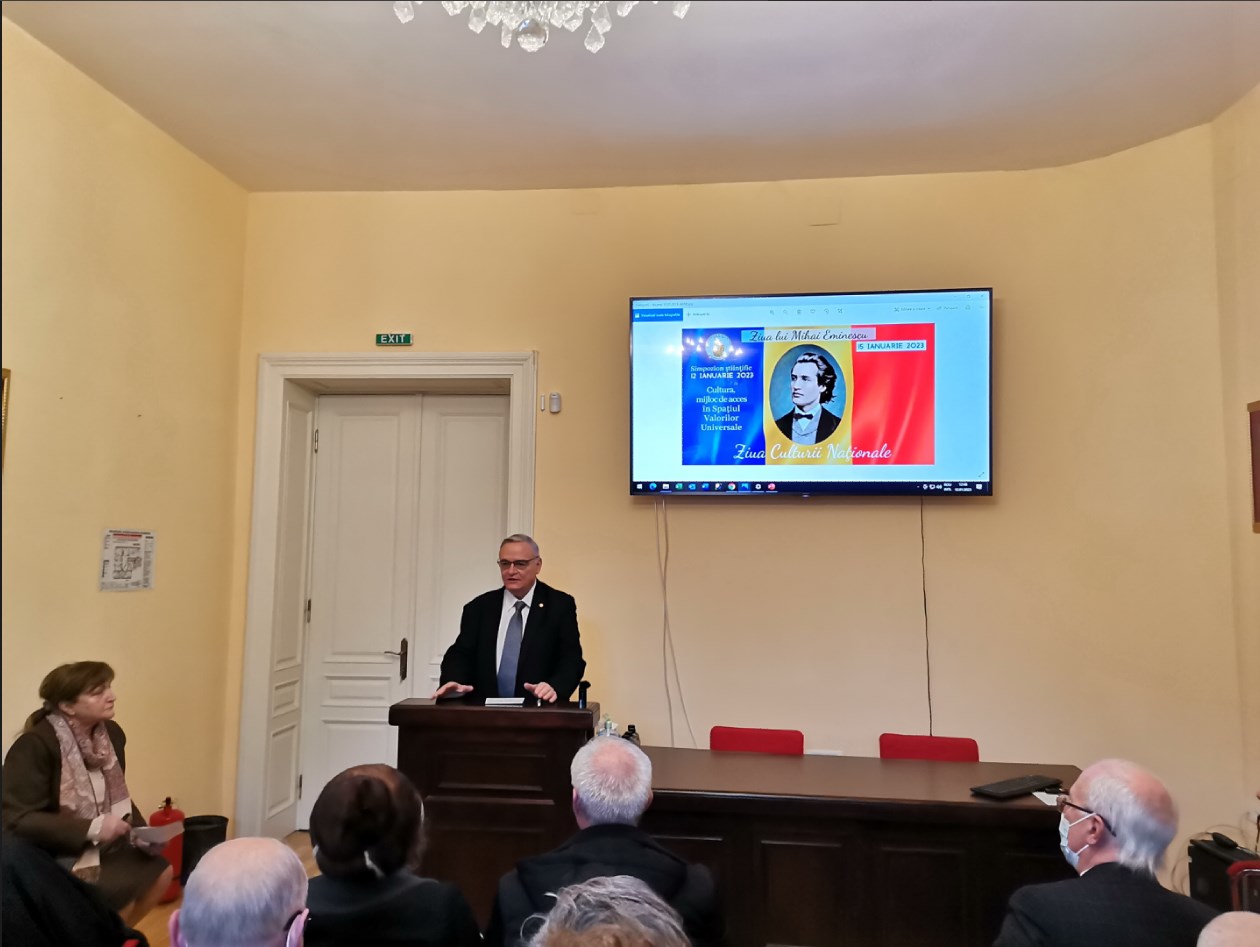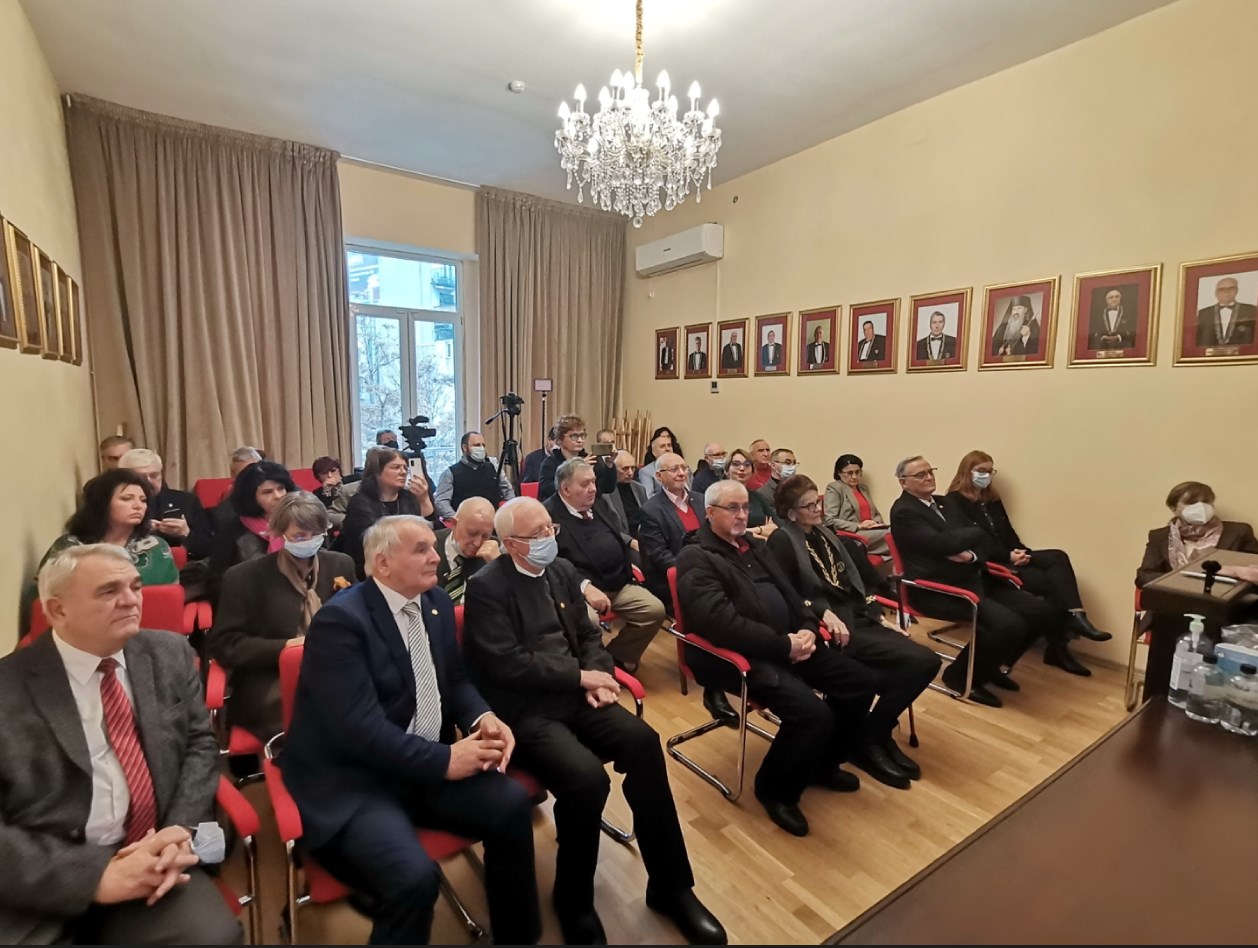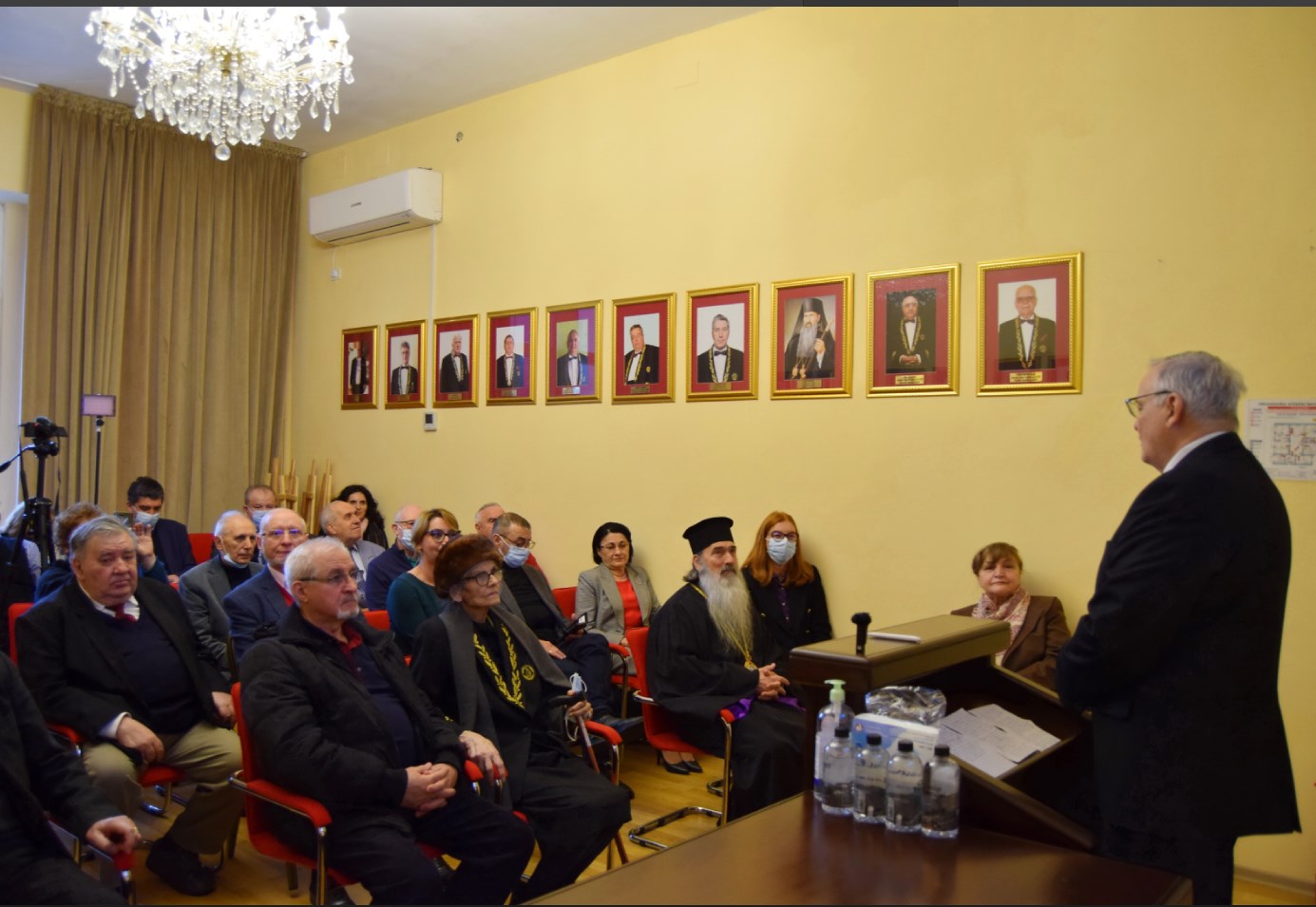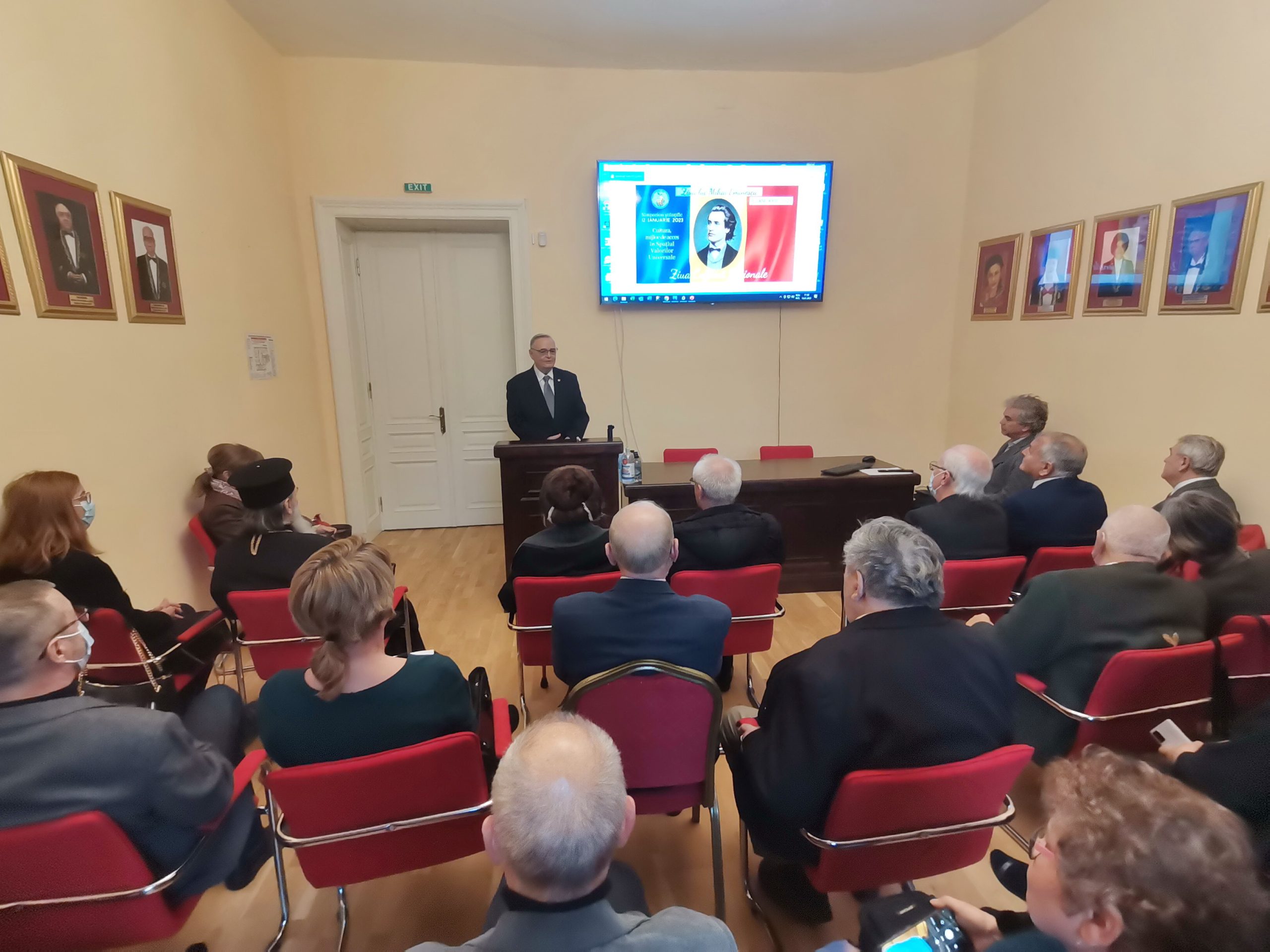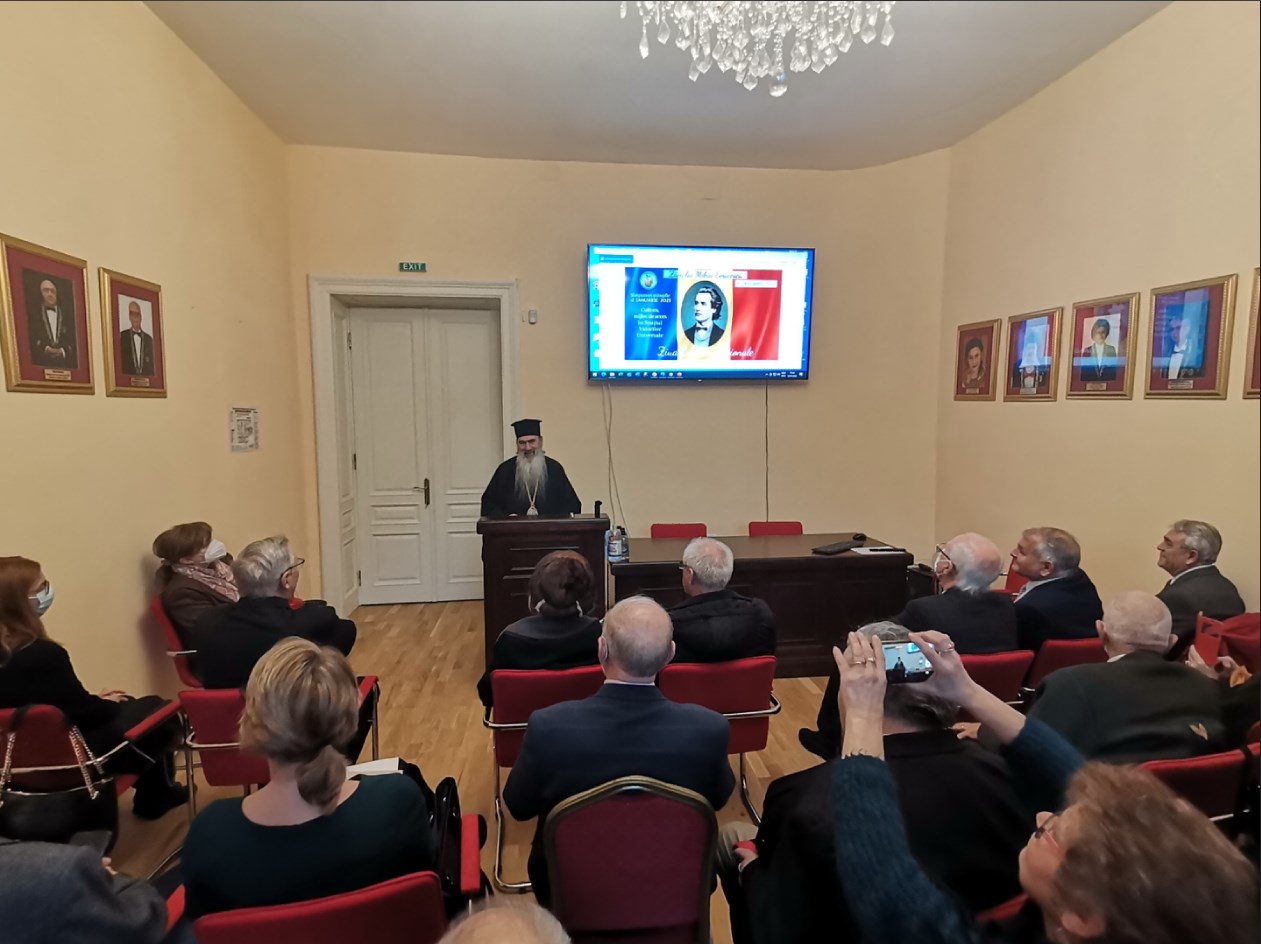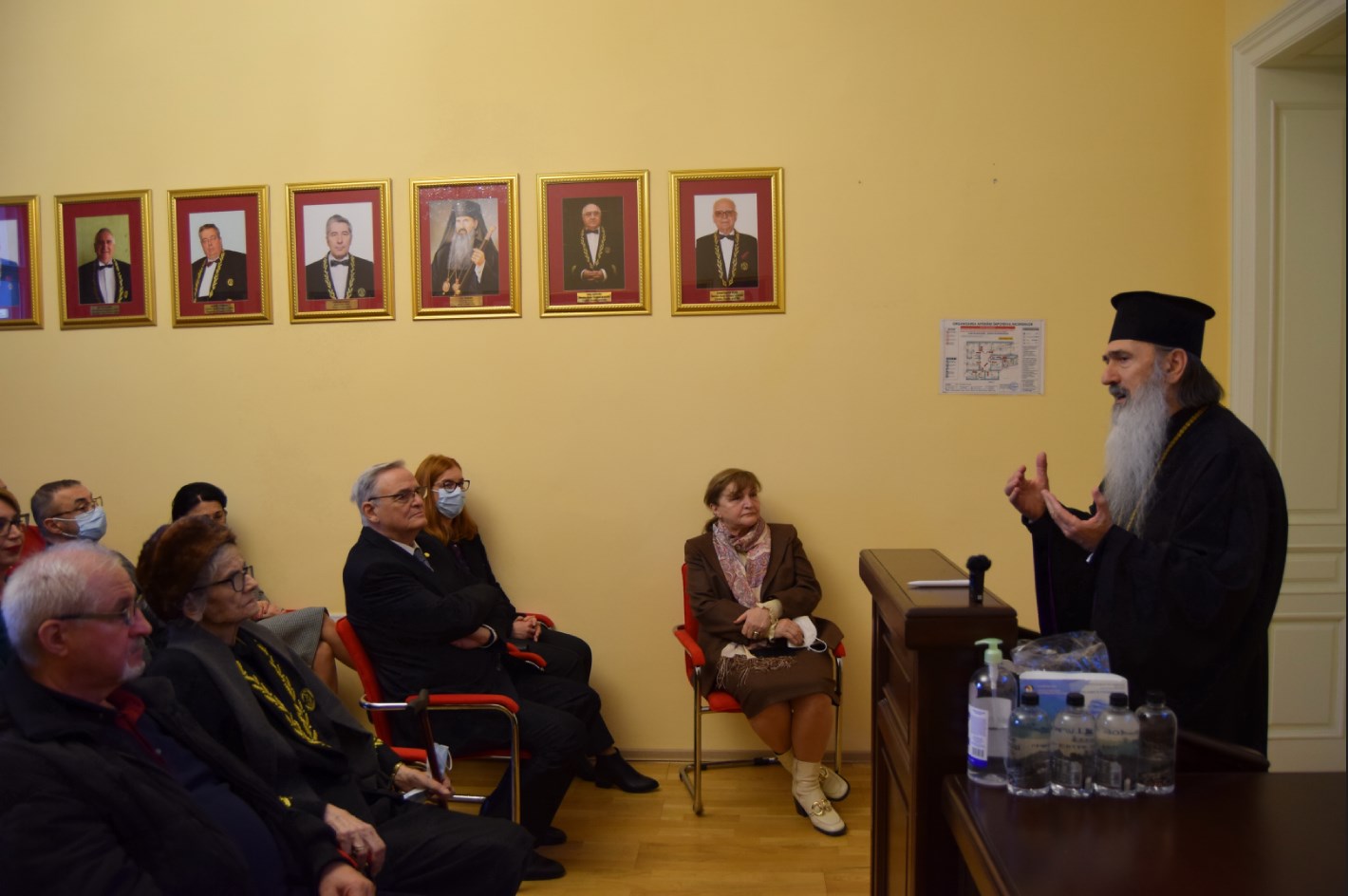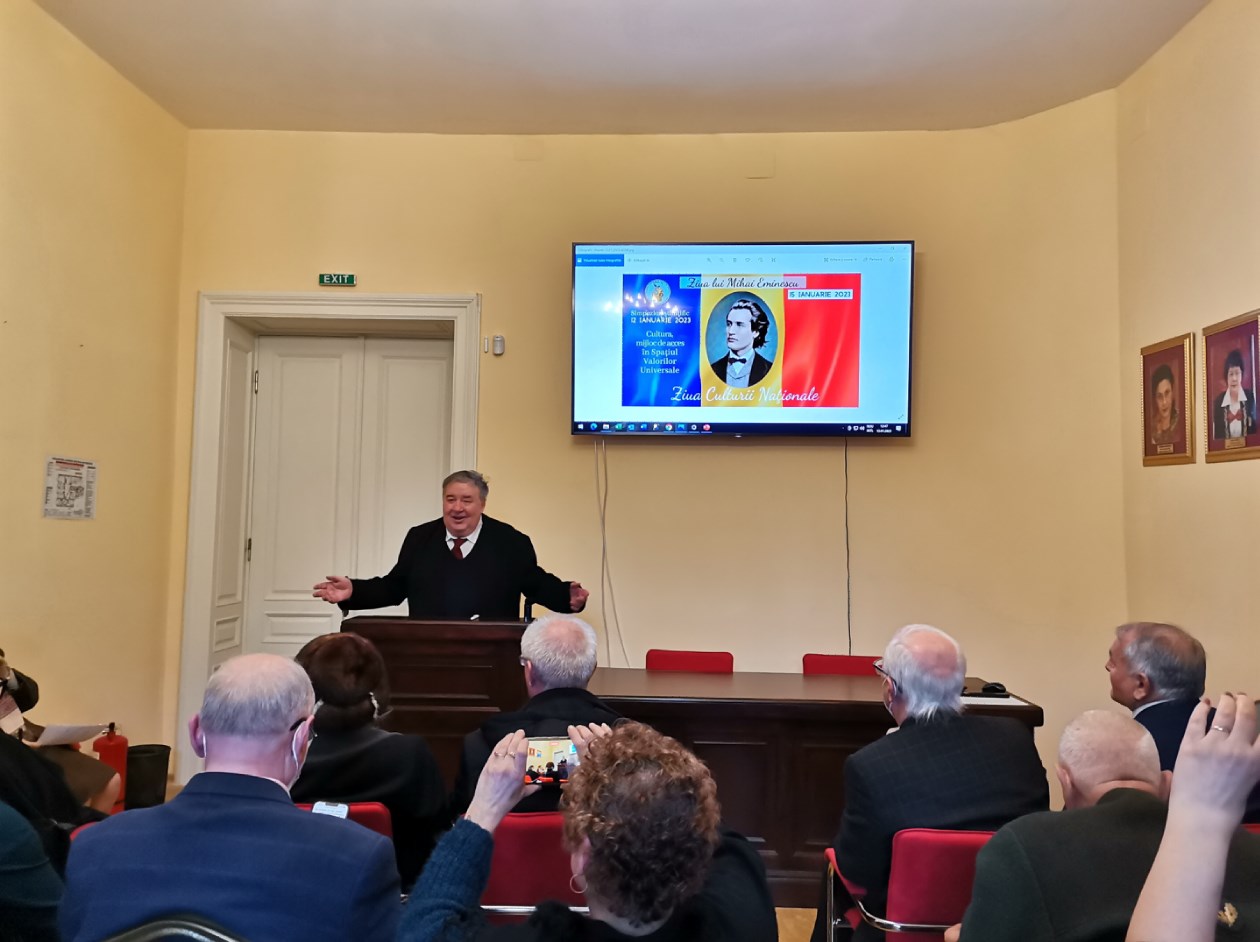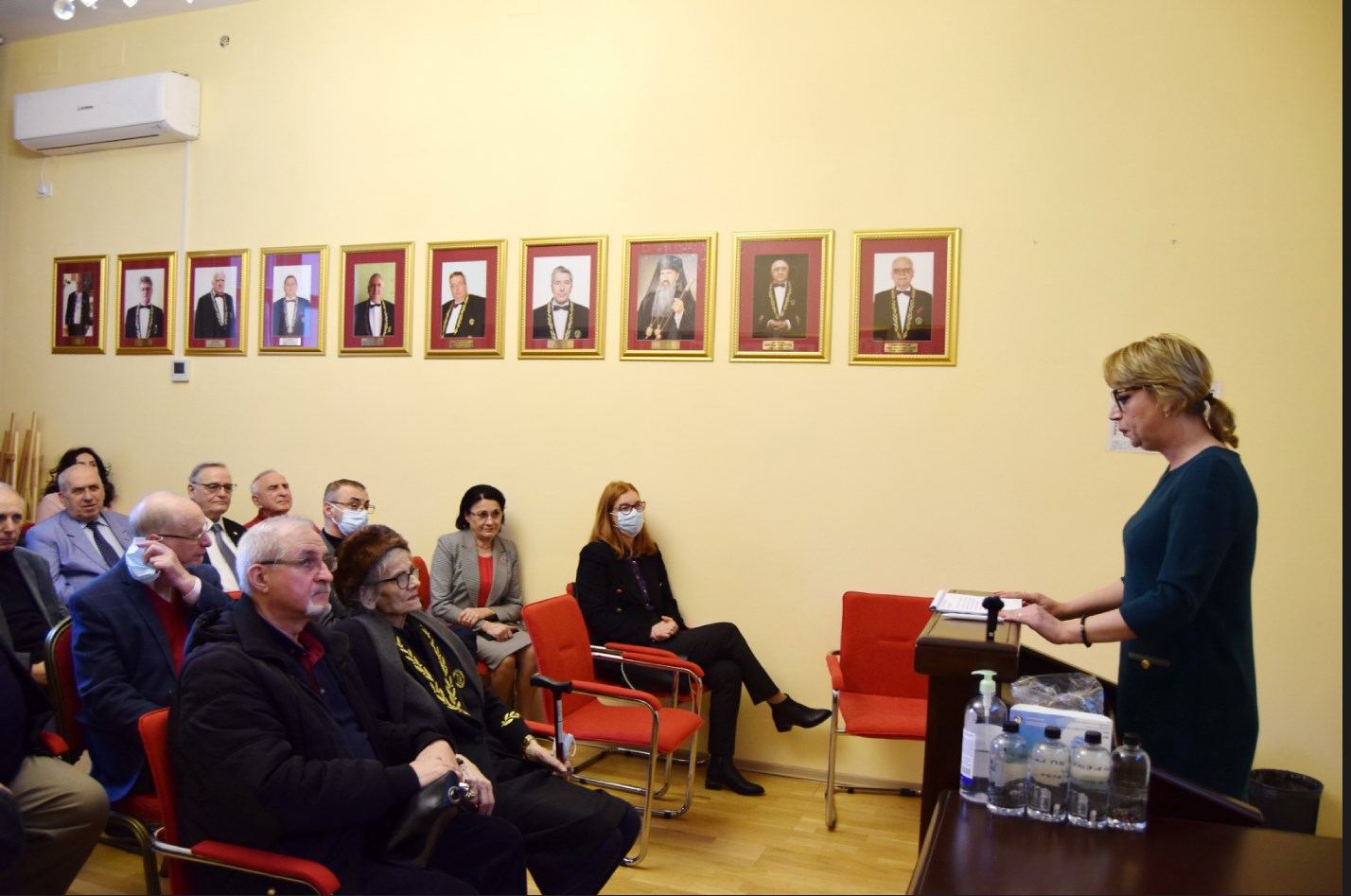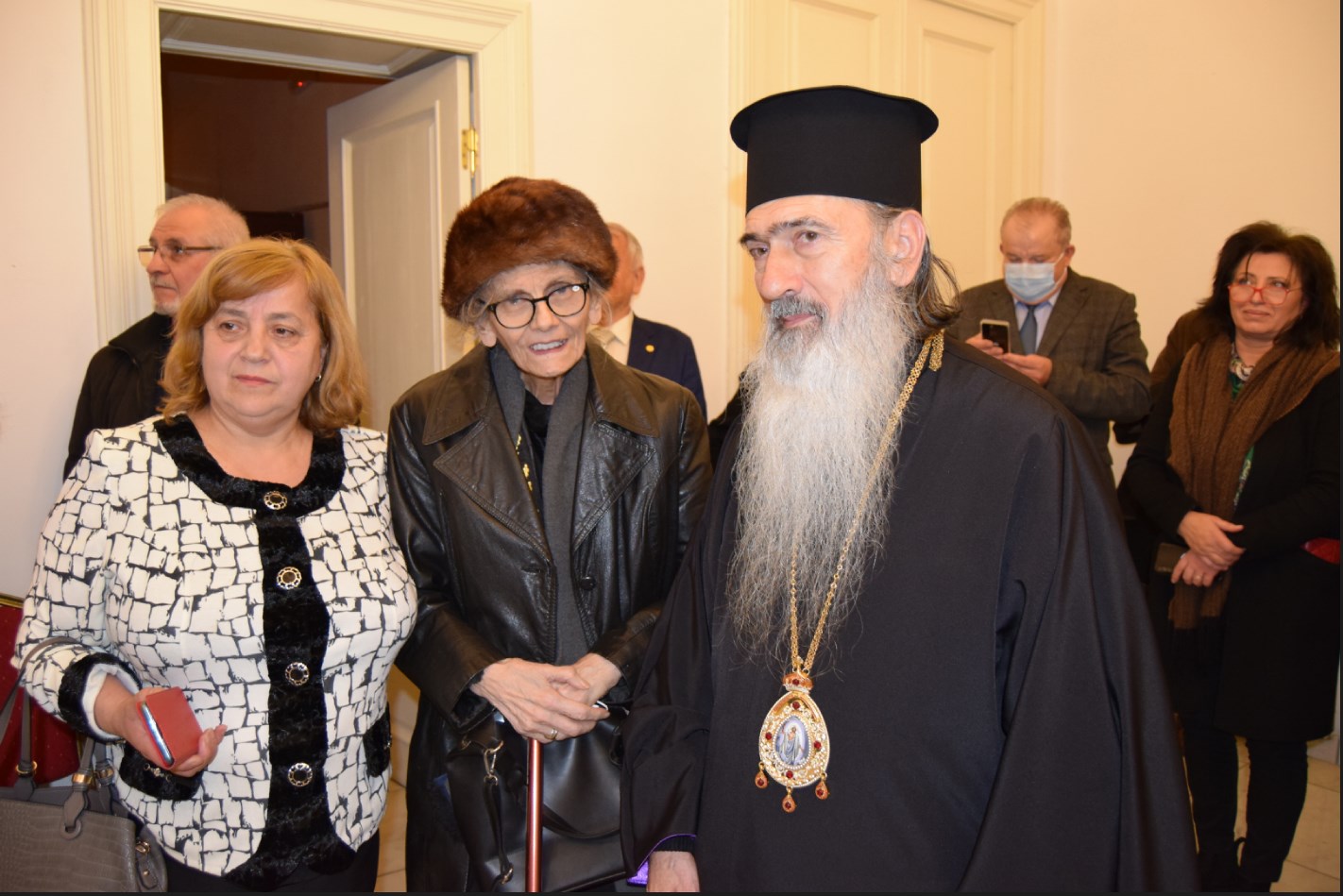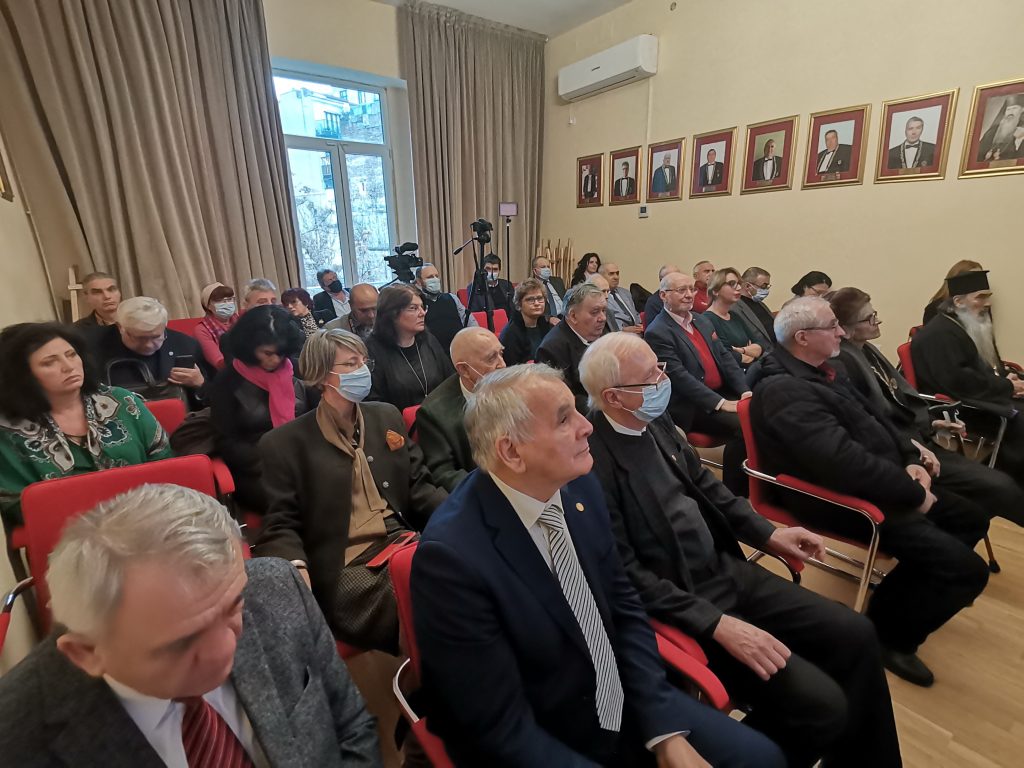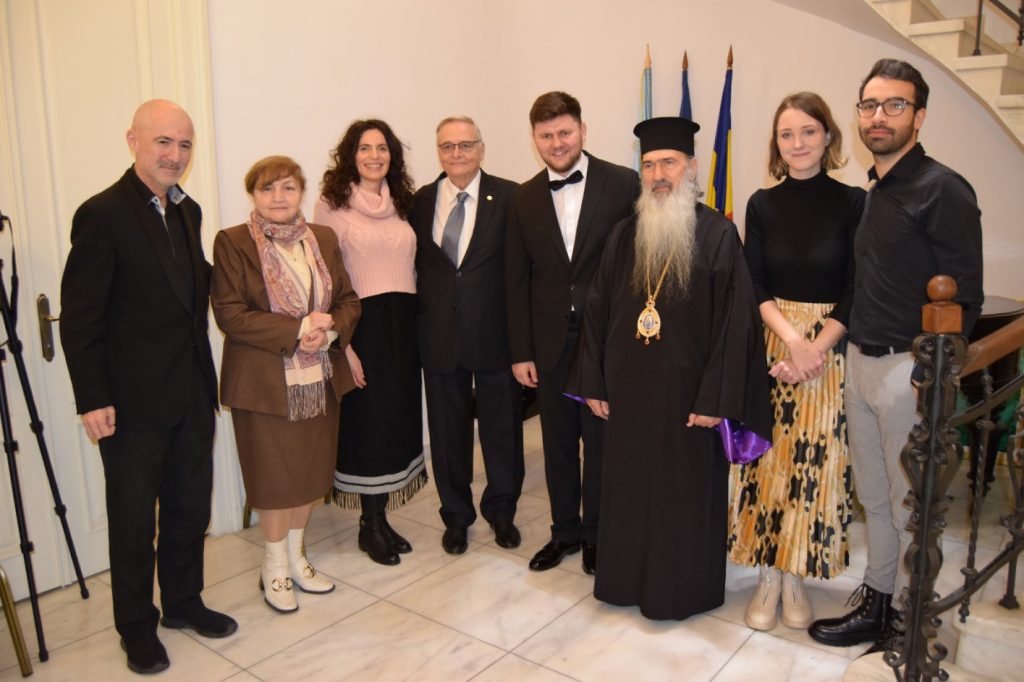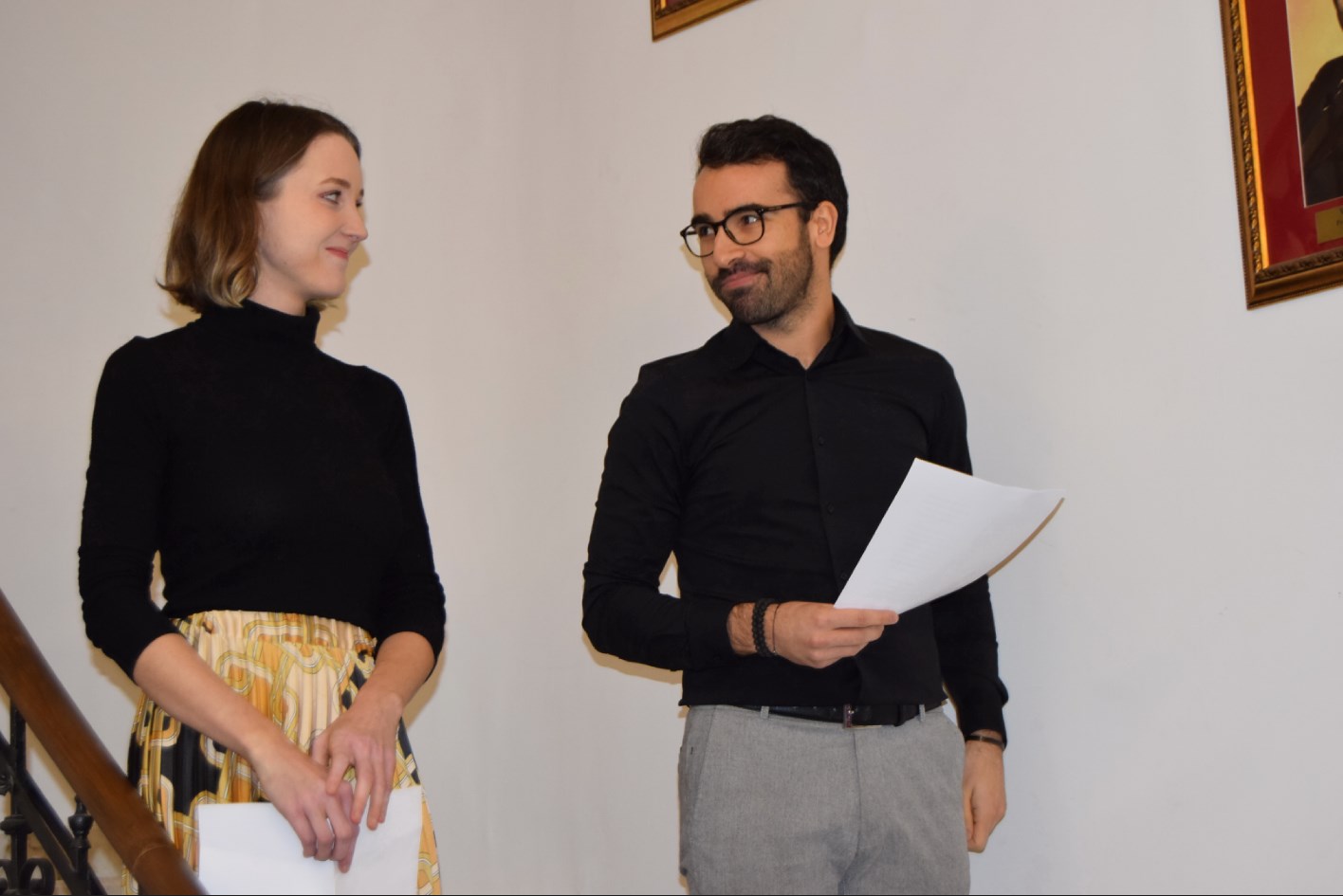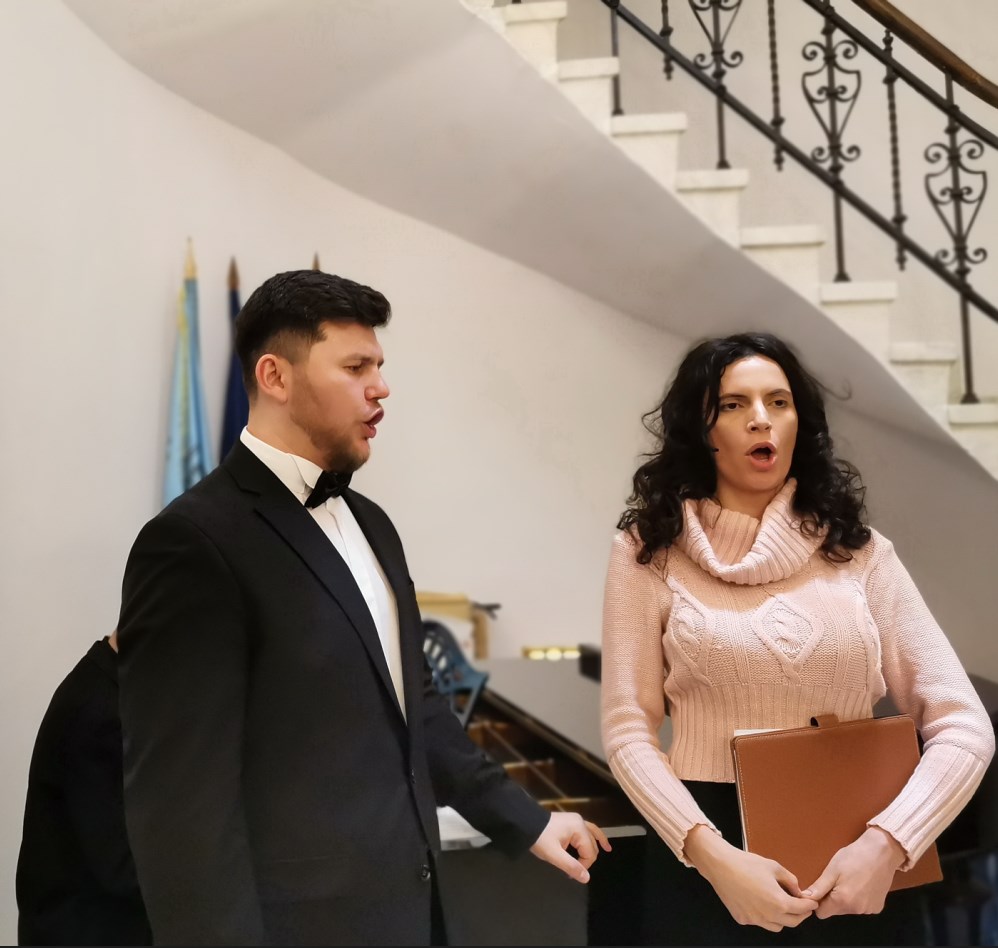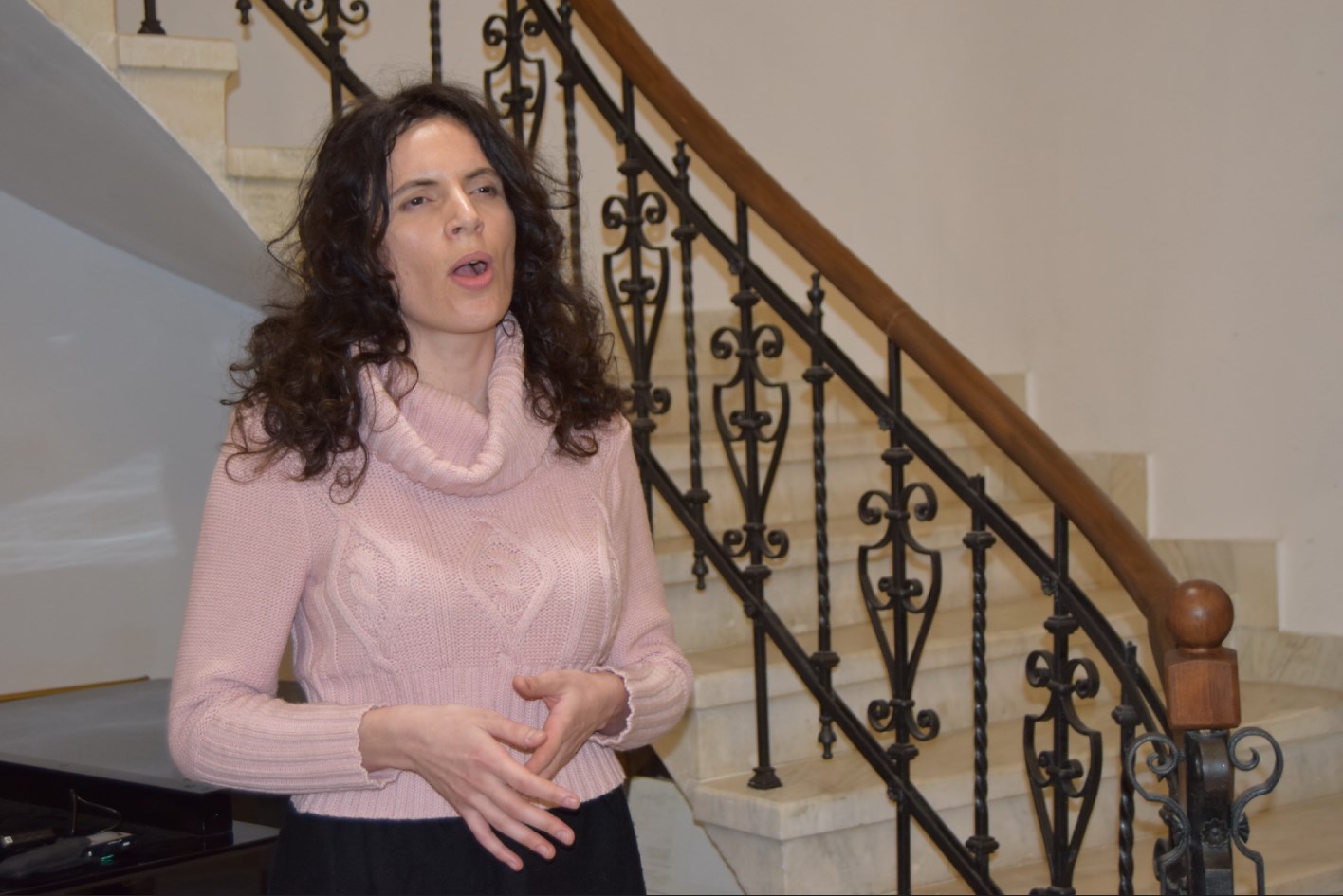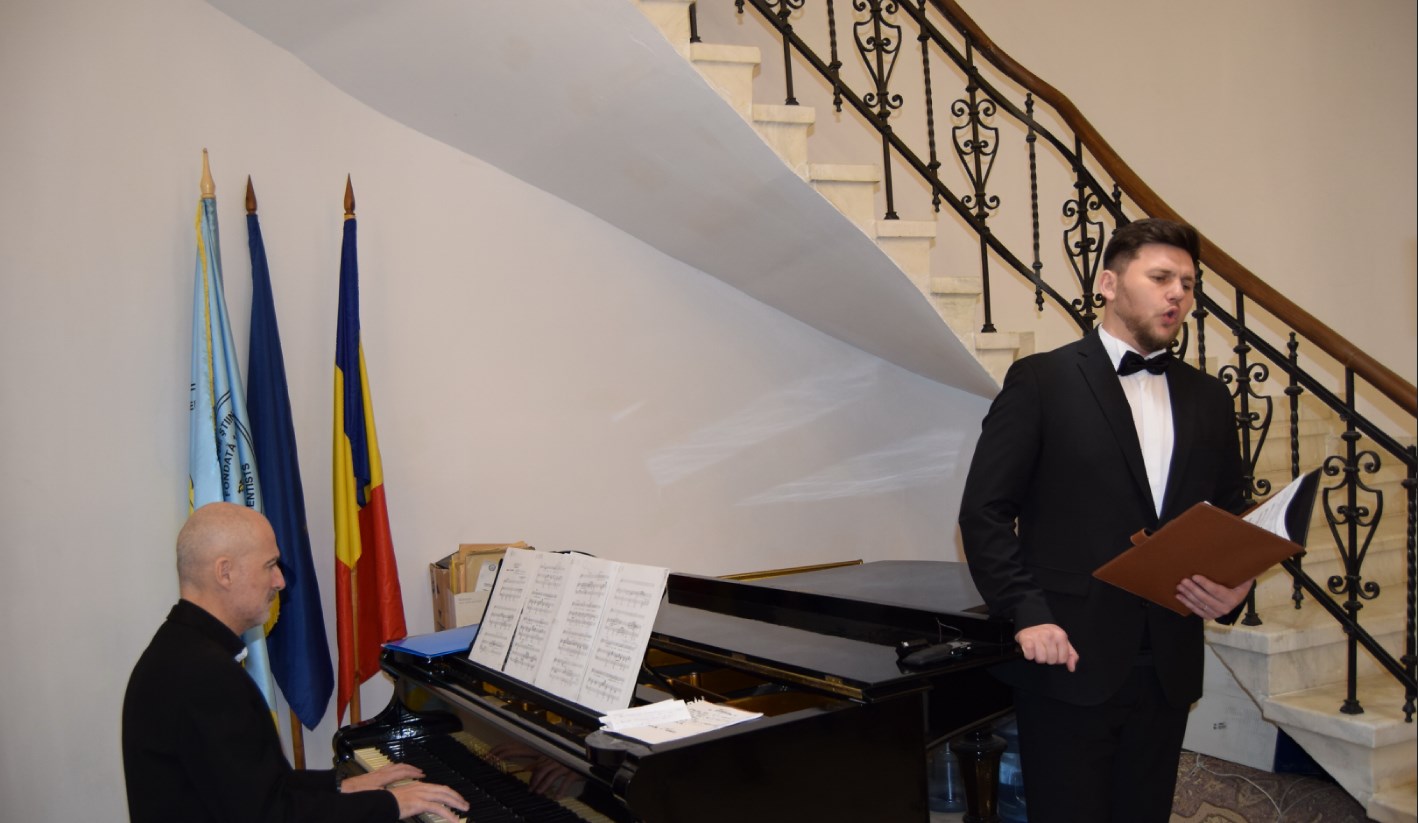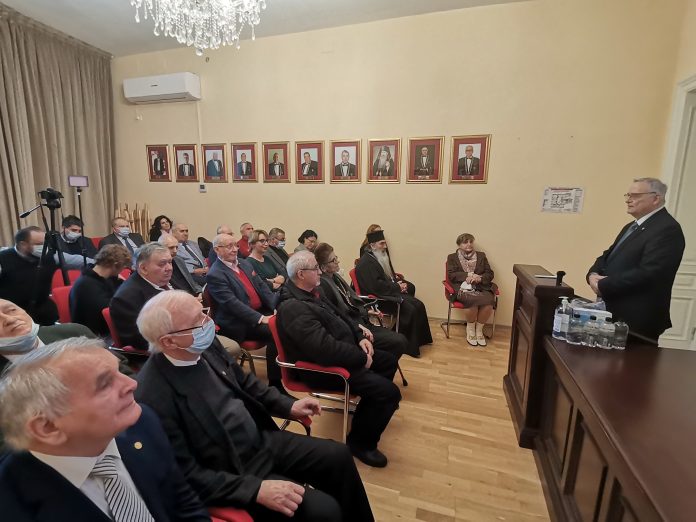On the occasion of 15 January – Mihai Eminescu’s Day and the National Culture Day -, the Academy of Romanian Scientists organized the Scientific Symposium “Culture, means of access to the Space of Universal Values” . The event took place on 12 January 2023, starting at 11 am, in the Constantin Angelescu Conference Hall of AOSR and was attended by personalities of Romanian education, culture and science.
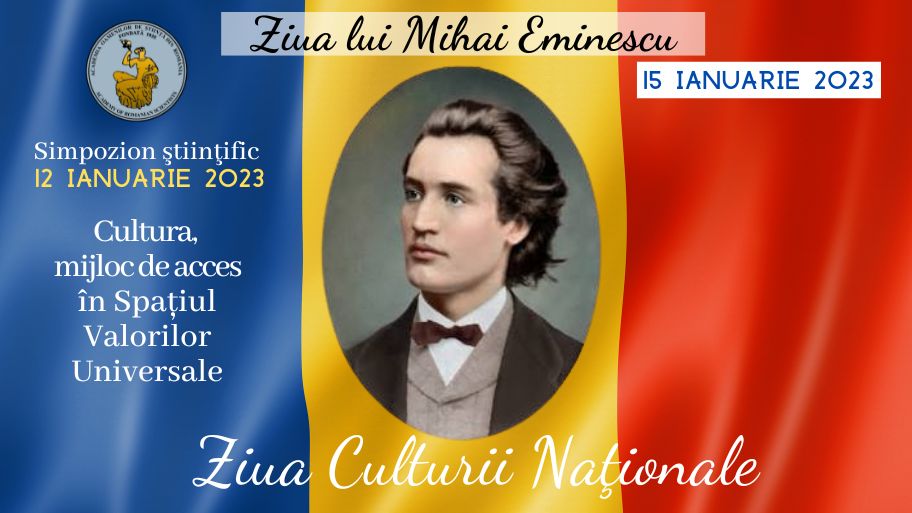
Considering the special significance, with a high symbolic value, of the 15th of January, the Symposium aimed to bring back into the present consciousness the importance of the National Poet’s work for the Romanian existence and the development of our culture, to underline its universal value and the need for new generations to know it. At the same time, the event revealed the role of national culture, through its perennial works, beyond conjuncture and ideology, in promoting Romanian civilization and spirituality in the area of universal values.
VIDEO
The event was structured in two parts: the Scientific Session and the Artistic Session. At the opening of the Symposium, prefaced by the academic hymn Gaudeamus igitur, prof. univ. dr. eng. Adrian Badea, President of the Academy of Romanian Scientists, said that 15 January is a day of joy, when we pay homage to Mihai Eminescu, “the full man of Romanian culture”, and celebrate National Culture and its values. Through the value of his work, Eminescu, the National Poet, opened the path of Romanian culture towards universality.
His Eminence Theodosius, Archbishop of Tomis and university professor, gave an academic lecture in which he stressed that Eminescu represents a synthesis of Romanian writing and culture, is a universal personality in his aspiration to embrace the universal spirit and the value of his creation. The “Perfect Poet of our culture” was also a religious man, not just a man of literature, the speaker stressed, for the religious dimension of his spirit and work advocating important Eminescian creations. Identifying himself with his country and his nation, loving the people, the poet shows a deep Romanian spirit, which, through his very rich culture, through the comprehensiveness and value of his work, becomes a universal spirit. The universality of the poet is deeply rooted in the very nature of the nation and the country: a Latin country with Eastern spirituality. Essentially, concluded Archbishop Theodosius, through his creation, Eminescu represents the Romanian nation and captures the divine Logos.
In a lecture entitled “Eminescu – Universal Poet”, Ioana Vasiloiu, PhD lecturer at the Faculty of Letters of the University of Bucharest, presented the coordinates of the poet’s existence and work, involving in the exposition fundamental critical landmarks of the exegesis of Eminescu. University professor Nicolae Georgescu, a leading Eminescuologist, gave a literary history lesson with significant elements from the biography and reception of Eminescu’s work. As a result of the recognition of the value of his work, the poet’s work began to be translated during his lifetime, the first translations of Eminesci’s poetry being in Hungarian and German. An important moment in the poet’s European career and a first step in his penetration into universality was his translation into German in the volume Rumänisches Dichtungen, published in 1881 in Leipzig, in which Eminescu is present with 20 poems, together with Alecsandri, Bolintineanu and I. Negruzzi. The poet was well known in German culture, which was the first cultural bridge to other cultures.
Stating that we love Eminescu even without knowing him well enough, Professor N. Georgescu advocated the need to know the work of the National Poet. In the second part of the event, the Artistic Session, young actors recited poems by Emineschi Claudia Ene and Andrei Atabay (UNATC) and performed musical creations on Eminescu’s verses by baritone Alexandru Chiriac (Brasov Opera) and mezzo-soprano Mihaela Ramona Bolojan (National Academy of Music “Gheorghe Dima”, Cluj-Napoca), accompanied on piano by Ieronim Buga (Romanian Athenaeum).
At the end of the Symposium, the President of the AOSR, Professor Adrian Badea, said:”Cultural values, together with the achievements of scientific research, are a gateway to the space of universal spirituality. They give the measure of a civilisation’s value, expressing its spiritual strength and greatness. Eminescu, through his genius and his creations, opened the way to universality for Romanian culture and civilization. The process has been continued by other great minds in the fields of culture and science and continues today. As a nation with great potential for intelligence and creativity, we have an important contribution to make to the heritage of universal culture and science. This is why we must focus on education, create a high-performance education system, encourage quality and excellence in academic education and scientific research, encourage and support exceptional young people. Through culture and science, not through other circumstantial means, we show what we really are in the world and place ourselves in the perennial space of universal values.”
Communication and Public Relations Office of the Academy of Romanian Scientists
(Contact: comunicare.aosr@gmail.com )
Bucharest, 14.01.2023
